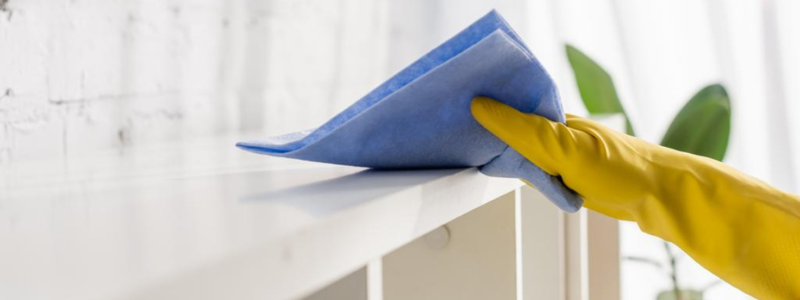Comprehensive Guide to Infection Control in Care Homes
- 25 Jul 2024
- News
Comprehensive Guide to Infection Control in Care Homes
Infection Control in Care Homes - Partnering with Specialists for a Healthier Care Home
Maintaining high standards of cleanliness and hygiene is crucial in care homes, where residents often live in close proximity and may have underlying health conditions that make them more susceptible to infections. The safety and well-being of residents are paramount, and partnering with infection control specialists can be a game-changer. In this article, we will explore how care homes can collaborate with these experts and the benefits of such partnerships.
Why Infection Control in Care Homes Matters.
Care homes are environments where residents live in close proximity,
often with underlying health conditions that make them more susceptible
to infections. Effective infection control is crucial to prevent
outbreaks of illnesses such as norovirus, influensa, and more recently,
COVID-19. Maintaining high standards of cleanliness and hygiene not only
protects residents but also reassures families and staff that the care
home is a safe place.
The Role of Infection Control Specialists
Infection control specialists are trained professionals with expertise
in preventing and managing infections in various settings, including
care homes. They bring a wealth of knowledge in identifying potential
risks, implementing best practices, and educating staff. Their role is
to provide guidance and support to ensure that infection control
measures are up to date and effective.
Benefits of Partnering with Infection Control Specialists
1. Expert Assessment and Guidance
Specialists can conduct thorough assessments of your care home’s
current infection control practices. They identify areas of improvement
and provide tailored recommendations. This expert guidance ensures that
your care home adheres to the latest standards and regulations, reducing
the risk of infections.
2. Training and Education
One of the significant advantages of working with infection control
specialists is access to specialised training programs for your staff.
These programs educate employees on the latest infection control
techniques, the correct use of personal protective equipment (PPE), and
effective hand hygiene practices. Continuous education helps staff stay
informed and vigilant.
3. Implementation of Best Practices
Infection control specialists can assist in implementing best practices
specific to care homes. This includes establishing protocols for
cleaning and disinfection, managing waste, and controlling outbreaks. By
following these practices, care homes can create a safer environment
for residents and staff.
4. Enhanced Infection Surveillance
Specialists help set up robust infection surveillance systems to monitor
and track infection rates within the care home. Early detection of
potential outbreaks allows for prompt intervention, minimising the
spread of infections. Regular audits and reviews by specialists ensure
ongoing compliance and effectiveness of control measures.
5. Improved Resident and Staff Confidence
Knowing that infection control experts are involved in maintaining a
safe environment boosts the confidence of residents, their families, and
the care home staff. This reassurance is vital for the mental
well-being of everyone involved and can positively impact the overall
atmosphere in the care home.
6. Access to Resources and Support
Infection control specialists provide access to a network of
resources, including the latest research, products, and technologies in
infection prevention. They can also offer support during outbreaks,
helping to manage the situation effectively and limit its impact.
Steps to Partner with Infection Control Specialists
- Identify Reputable Specialists: Look for professionals or organisations with a proven track record in infection control within care settings.
- Initial Assessment: Arrange for an initial assessment to understand your current infection control status and identify areas for improvement.
- Develop a Partnership Plan: Work with the specialists to create a comprehensive plan that includes training, implementation of best practices, and regular reviews.
- Ongoing Collaboration: Maintain an ongoing relationship with the specialists for continuous support, updates, and audits.
Conclusion
Strengthening infection control measures is essential for the safety and
well-being of care home residents and staff. Partnering with infection
control specialists provides numerous benefits, from expert guidance and
staff training to enhanced safety and confidence for residents and
staff. By taking proactive steps and leveraging specialist expertise,
care homes can ensure a healthier, safer environment for everyone.
Read More about Infection Control here: NHS England » National infection prevention and control
Read more about Fusion Care Management Software here: Care Management Software by Fusion eCare
Stay safe and committed to excellence in infection control!





